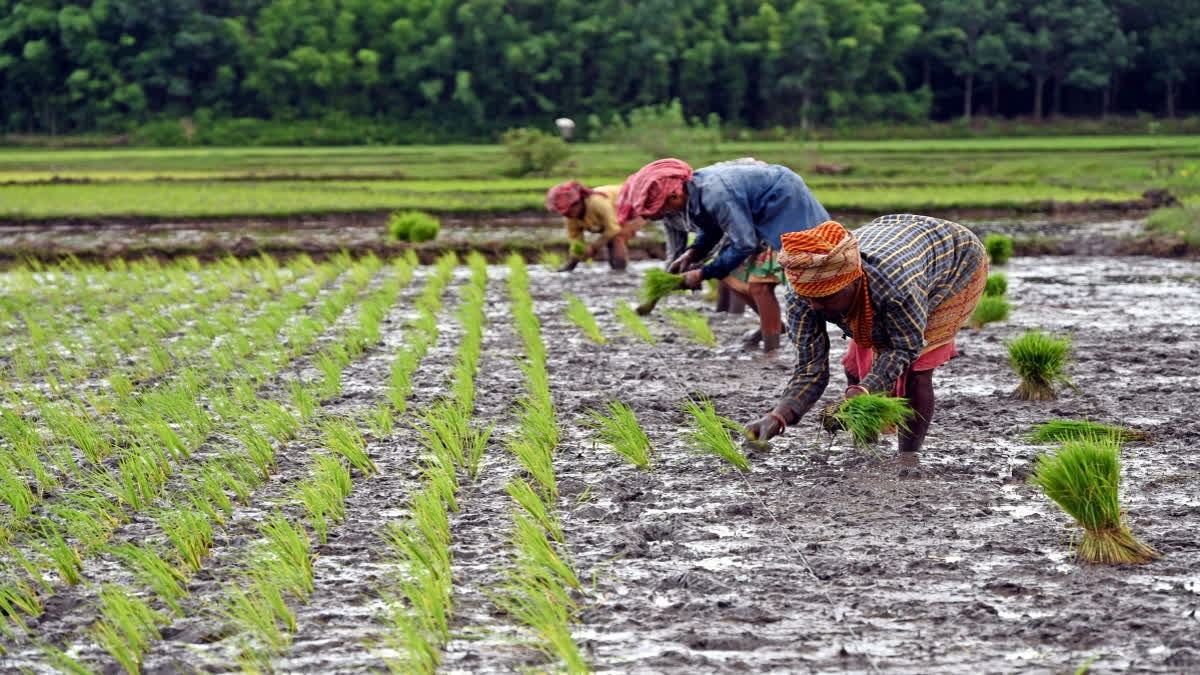New Delhi: The Indian Council of Agricultural Research (ICAR) assessed the risk and vulnerability of 573 out of 651 predominantly agricultural districts as per Intergovernmental Panel on Climate Change (IPCC) protocols. A total of 109 districts are categorised as 'very highly' and 201 districts as 'highly' vulnerable, Union Minister for Agriculture & Farmers’ Welfare Shivraj Singh Chouhan said on Friday.
As per integrated computer simulation modelling studies revealed, in the absence of the adoption of adaptation measures, climate change projections are likely to reduce rainfed rice yields by 20 per cent in 2050 and 47 per cent in 2080 scenarios while, irrigated rice yields by 3.5 per cent in 2050 and 5 per cent in 2080 scenarios, wheat yield by 19.3 per cent in 2050 and 40 per cent in 2080 scenarios, Kharif maize yields by 18 to 23 per cent in 2050 and 2080 scenarios, respectively. Soybean yields are projected to increase by 3-10 per cent in 2030 and 14 per cent in 2080 scenarios, the Minister said in a written reply to Rajya Sabha.
Adaptation measures have been taken to mitigate the impact of climate change on agriculture in 448 villages in 151 climatically vulnerable districts, where demonstration of climate resilient technologies, climate-resilient varieties, direct seeded rice (DSR), efficient irrigation systems, nitrogen application as per soil health card and leaf colour charts, avoiding crop residue burning, crop residue recycling into soil, replacing fossil fuels with biogas and vermicomposting, reducing methane emissions from livestock through improved fodder management systems and community fodder bank, agroforestry systems as carbon sinks and zero till drill wheat to escape terminal heat stress were conducted. Prepared and implemented the District Agricultural Contingency Plan (DACP) in 651 agriculturally important districts of the country, Chouhan further informed.
To support the farmers in adopting climate-resilient agriculture practices, the government is implementing the National Mission for Sustainable Agriculture (NMSA) to deal with the impact of climate change on agriculture. NMSA has three major components - Rainfed Area Development (RAD), On Farm Water Management (OFWM), and Soil Health Management (SHM).
The Mission aims at evolving and implementing adaptation and mitigation practices across the country to make the agriculture climate resilient to the changing climate, he added.



